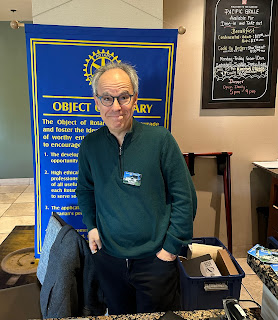Let’s say you’ve landed a job in a field different than the one you previously worked in. Or you decided to launch an entirely new career or start a business. You’ve done your homework, in so far as reading everything you could find on the Internet. Then you shared what you learned with the AI tool of your choice to ask questions to fill in gaps in your knowledge.
You’re ready to get started on your new adventure, or so you think. But you might not have spoken to anyone who actually does the work you want. Perhaps you know people — or know people who know people — who do this kind of work. Yet connecting with them might take considerable time and effort. So, you pause, and ask yourself: are there professional communities for people who do the work? Where are they? So, you seek them out. You find them. Now, what do you do?
Ideally, you choose to attend local meetings of such professional and business associations. Perhaps you’ll even attend a national conference, time and budget permitting. Your conversations will provide you with invaluable insight and information.
Still, before you venture into exploring new groups, you pause (again). Pursuing a new path professionally can be daunting by itself. Exploring related groups catering to like-minded professionals can be even more challenging. Some have long a history, and participants who know each other well. It can be hard for newcomers to break in. These groups may even consider themselves as gatekeepers for the profession. Their support and “blessing” for your journey could matter a lot. So you need to plan your outreach with all due care and consideration.
In other words, what can you do? How do you make the most of these new places and connections right out of the gate? Actually, the solution lies not so much in what you do. It’s what you don’t do, in part. It’s about how you conduct yourself from the start. That means from the moment you make the initial contact.
Here’s some guidance based on my experiences in attempting to “break into” new professional communities over the past few decades.
First, don’t focus on what you can get. Yes, you have specific needs in attending. You need to tend to them. All participants do. But as a first timer, that narrow focus is shortsighted and potentially counterproductive. Coming across as self-centered, and even arrogant or a know it all, only will alienate others.
Instead, consider how you your responses to the following questions before you reach out.
- How can you demonstrate your genuine interest and passion for the group?
- How can you show that you’re here for the long haul?
- How can you support others you meet and the group as a whole?
Remain low key and humble. Remember, you are visiting the group to learn. You want people to want to help you. You want to learn from them. Otherwise, why are you there? In other words, adopt an attitude of curiosity, inquiry, and generosity. Make it about others, and the organization, not about you. In time, as you get to know others and they get to know you, your needs will be met.


